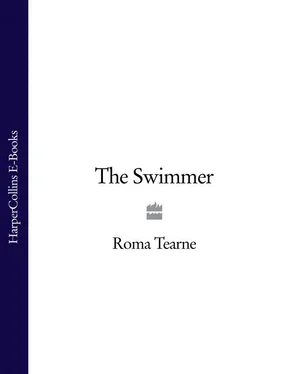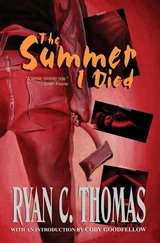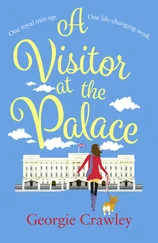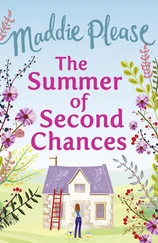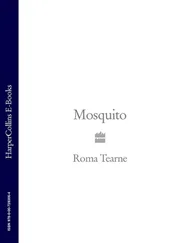1 ...7 8 9 11 12 13 ...16 I could hear her sipping her wine.
She rang off and I wandered restlessly around the house, unable to settle to any work. I found myself going towards the piano and staring at the closed lid.
‘What’s wrong with me?’ I muttered.
Maybe I had overworked myself last night. The draft of the poem I had written in an alcoholic haze wasn’t quite right yet. What had seemed luminous and neat in the darkness was a little clumsy. I would have to work on it much more. Perfection did not come without pain, but I wasn’t in the mood tonight.
After about an hour the rain began to ease off and the air cooled slightly. I shivered and threw on a cardigan. It was not the weather for swimming. Pouring myself a generous glass of wine I went back up to my study where force of habit made me drift towards the window. I was still struggling with an idea. This long overdue collection of poems was turning out to be about the absence of parental love. I stared towards the dark point where the water flowed. Bitterness had stopped me from writing objectively, I thought. Then, perhaps because of the peculiar mood I was in, for the first time in many years I began to go over what had happened in that single most significant moment of my life.
I was ten years old and the school summer holidays had arrived. My father was due to have a small operation. Six-year-old Jack and I were sent to Eel House. This very room had been my bedroom, then. In those days, when the farm was at the height of its productivity, an extra pair of hands at harvest was always welcome. We kissed our parents goodbye. My father was going to the hospital the following morning and with us away my mother would be free to nurse him back to health. I remember them standing on the step waving.
‘Look after Jack,’ my mother called, anxious as always about her darling son.
‘Don’t forget to write, Ria,’ my father said, his smile going all the way up to his eyes.
He had the bluest of eyes, like a shimmer of cornflowers. The sunlight on them seemed to sharpen their colour. I have inherited their brightness. Jack has brown eyes like my mother. At Saxmundham station, Uncle Clifford was there to meet us. He was older than Dad, more serious, quieter. Both Jack and I were very fond of him.
All through that long holiday my brother and I played by the river and helped out in the fields. I wrote home twice but was told there was a postal strike so no letter came back. My mother rang several times, but on each occasion we were either out playing or at Eric’s farm for supper. Several times during those weeks he took us out in his boat to set the eel-traps and once or twice, very early in the morning before the sun was up, we went to check the baskets.
There came a night, one that remains very clearly in my memory, when for some unknown reason my uncle and aunt insisted we stay over with Eric and his wife Peggy. They seemed upset. Eric had looked a little subdued too. We could go with him on another early jaunt upriver, he said. Jack was excited but I remember I didn’t want to go, and the next morning I caught a glimpse of our uncle and aunt driving off in the direction of town.
‘Where are they going?’ I asked, puzzled, but Eric had his face turned away and didn’t hear me.
The weather continued to hold, the land grew rosy and then golden in the heat. Jack and I lost our pasty look and turned a gentle nutbrown. We had taken to running around in our bare feet and even Aunt Elsa didn’t try to stop us. Preoccupied with worries of their own, both our uncle and aunt left us to our own devices. From time to time, in the weeks that followed, as we loitered in the overgrown country lanes in search of treasures, or took our kites to the beach, I wondered vaguely what was the matter with them, but then forgot about it. Suddenly one morning my aunt woke me with a grim look on her face.
‘Your mother wants you back,’ she said shortly.
‘When?’ I asked.
‘Why?’ was Jack’s predictable reaction.
Uncle Clifford had brought the car round already. Our aunt, I saw with surprise, had even packed our bags in the night.
‘But I don’t want to go,’ Jack wailed. ‘I don’t want to go back to school.’
I knew school wasn’t for a few more weeks. Something about my aunt’s mood alarmed me.
‘What’s wrong?’ I asked, but she shook her head and looked away.
I knew she didn’t like my mother. Probably they had had a row, I decided. We rushed to wash and have some breakfast. By now I was a little uneasy and Jack was in a bad mood. We had arranged to go to Orford that day and have a kite-flying competition with my friend Heather. I remember Jack howling and refusing to put his shoes on. He loved Heather and was bitterly disappointed.
‘Be a good boy, darling,’ my aunt said, bending to do them up.
She mumbled something about growing up, but wouldn’t say more. Then, just as we were getting into the car, she ran out and gave us each a fierce hug, after which she held me at arm’s length and peered hard at me. She looked as if she had been crying.
‘Come back, Ria,’ she told me softly. ‘Whenever you want. This place belongs to you.’
That I hadn’t said goodbye to Eric was all I could think as my uncle drove us to the station to board the train bound for London. Our aunt had packed us sandwiches and some of the delicious home-made lemonade we had been drinking all summer long.
The journey home was tedious and we had to change trains twice. The views from our carriage window went slowly from the flat landscape I loved to a grimy build-up of houses and factories. After what seemed like ages we arrived at Liverpool Street and saw our mother waiting for us on the platform.
‘Where’s Dad?’ Jack asked.
‘Is he still in hospital?’
‘Come on,’ Mum said. ‘The car is in a twenty-minute space.’
‘How’s Dad?’ I asked when we were in the car, but she was busy negotiating the traffic and didn’t answer.
We were home in fifteen minutes.
‘I feel sick,’ Jack said.
‘I told you not to drink all that lemonade,’ I scolded, rushing up to the house.
But once in the front door we both came to an abrupt halt for the sitting room was filled with flowers.
‘Why are there so many flowers?’
‘Where’s Dad?’
‘Mum?’ I asked, suddenly frightened, seeing the look on my mother’s face.
She sat down heavily and looked at us both helplessly. Then she grabbed Jack, who squirmed but allowed her to draw him towards her. She was looking at me, fixing me with a look I took to mean that I was in trouble.
‘What’s wrong, Mum?’ I asked.
The pit of my stomach seemed to be falling away. My legs had begun to shake.
‘Mum?’ I asked again, my voice rising with panic.
There was a fraction of a pause as she drew Jack to her more closely so that he made a small noise of protest.
‘Children,’ she said, ‘I have some bad news. There was a complication with your father’s operation. He got peritonitis.’
She stopped and seemed to choke.
‘Where is he?’ I shouted. ‘Mum? Mum?’
‘He’s dead, Ria,’ she said in a small voice. ‘We had the funeral last week.’ And then she began to cry.
It was how I heard the news of what had happened to my beloved father; on the day that my childhood ended.
The air had become warmer and the scent of stirred-up earth and grass, and dust after rain, filled it. The sky was rosy once more and in the early twilight a sharp fork of geese flew clacking between the trees, silhouetted now by a watery light. Tomorrow the sun would be high in the sky again, the heat would return for a week or two longer, even though a few autumnal minutes were already wiping away the summer. What lingered was a softness of light. I was just about to reach out for the switch of my table lamp when I saw him. My swimmer! He was much earlier than before, moving slowly across the surface of the water. I stood open-mouthed and astonished. Then I turned silently and let myself out of the kitchen door, rounding the corner of the house before I stopped. The swimmer had reached the bank and was clambering up it. He had his back to me as once again he began to dry himself with his shirt. I stood waiting. Under the darkening summer sky I could see that he was not a local boy. I watched as he shook his dark curly hair and water sprayed out. He had been swimming in his trousers again and now he reached for the shoes he had thrown down in the long grass. He was putting them on when something made him turn slightly. I stood rooted to the spot and watched as, lifting his head, he listened. Then slowly he moved his head and saw me. For a whole minute we stared at each other without speaking. Both of us shocked. He was the first to break the silence, surprising me by holding up his hand, one foot in a shoe. He looked ready to run.
Читать дальше
